Victoria and Abdul
 for some thematic elements and language.
for some thematic elements and language.
Reviewed by: Nicky VanValkenburgh
CONTRIBUTOR
| Moral Rating: | Offensive |
| Moviemaking Quality: |
|
| Primary Audience: | Adults |
| Genre: | Biography History Drama Adaptation |
| Length: | 1 hr. 52 min. |
| Year of Release: | 2017 |
| USA Release: |
September 22, 2017 (limited) October 6, 2017 (wide—732 theaters) DVD: December 19, 2017 |
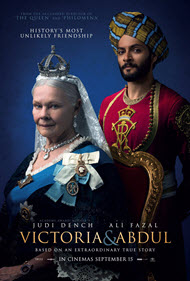

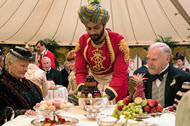
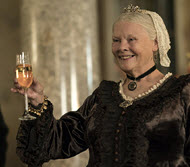
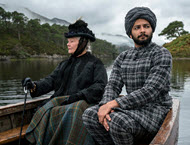
unlikely friendships
snobbery
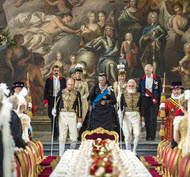
RACISM—What are the consequences of RACIAL PREJUDICE and false beliefs about the origin of races? Answer
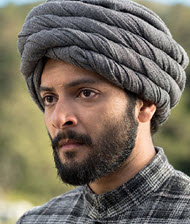
About Islam—An Overview for Christians
Recommended resources
How does the Qur’an compare to the Book of Genesis on the great events of history—Creation, Fall, Flood and confusion of languages? Answer
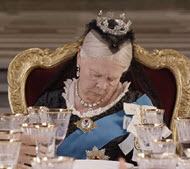
Problems of growing old
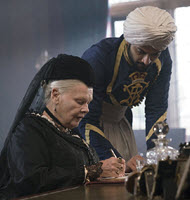
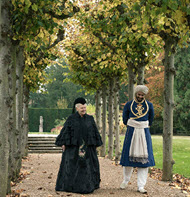
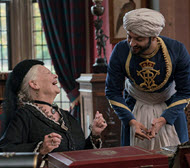
| Featuring |
|---|
|
Judi Dench … Queen Victoria Ali Fazal … Abdul Karim Tim Pigott-Smith … Sir Henry Ponsonby Eddie Izzard … Bertie, Prince of Wales Adeel Akhtar … Mohammed Michael Gambon … Lord Salisbury Paul Higgins … Dr. Reid Olivia Williams … Lady Churchill Fenella Woolgar … Miss Phipps See all » |
| Director |
| Stephen Frears — “Sammy and Rosie Get Laid,” “Chéri,” “Philomena”, “Mrs. Henderson Presents,” “The Queen,” “High Fidelity” |
| Producer |
|
BBC Films Cross Street Films See all » |
| Distributor |
Revisionist history—painting Islam in an unrealistically favorable light
“Victoria and Abdul” is a biographical comedic drama based on the book of same name by Shrabani Basu, and on the actual relationship between Queen Victoria of Britain (played by Judi Dench) and her Indian Muslim servant Abdul Karim (played by Ali Fazal). It is based on a story that author Basu stumbled upon and subsequently led him to write a book.
The story begins in 1887, as Abdul travels from India to Britain to present the Queen with a ceremonial coin as part of the Queen’s Golden Jubilee. Evidently, Abdul is chosen for the job because he is the tallest man at his company. His associate Mohammed (played by Adeel Akhtar) also accompanies him to England. Abdul is excited about the assignment, and considers it to be an adventure, but Mohammed wants to complete the task as quickly as possible, and return to India.
Upon arrival at Windsor Castle, the Indian men are given strict instructions not to look at the Queen while presenting her with a ceremonial coin. However, Abdul respectfully bows to the queen and kisses her feet. The queen notices that he is handsome, and begins talking with him. Later, the queen summons Abdul, and he shares about the Taj Mahal, Indian curries and spices, and culture of India. The Queen is astonished. Britain has control over India, but she knows little about the country and their way of life. Queen Victoria has never been to India, because there was a fatwa (i.e., religious decree) against her, and her life would be in danger there.
Soon, Queen Victoria promotes Abdul to “Munshi,” which is the Urdu word for teacher. He begins teaching her how to read and write in Urdu. It is quite challenging for the Queen to write using this mysterious Arabic alphabet. Abdul begins by teaching her with a simple phrase, “I am the Queen.”
The Queen opens up to Abdul and admits that she misses her husband who passed away. She is hated by millions, and her children are at odds with each other. She has a horrible relationship with her son Bertie (played by Eddie Izzard) who is next in line to become king.
Abdul reminds the Queen that she is here for a purpose, and her mission in life is to serve others. Yes, even though Queen Victoria is waited on hand and foot, she must strive to be of service to others.
As part of the royal entourage, Abdul accompanies the Queen to Scotland, and later to Florence, Italy. They return to Osbourne House, which is Queen Victoria’s family home and seaside residence.
Interestingly, each location has a completely different architecture and feel. At the Scottish Highlands, they experience strong gusty winds and everything seems miserable. Even so, Abdul is delighted and amazed by the Scottish Highlands, and marvels how it’s a rare journey and how extraordinary it is to have made it in the company of the Queen.
The Queen gives Abdul a gold locket with a photo of herself. An odd friendship develops between them. He is 24 years old, and she is old enough to be his grandmother (around 80). They hold hands, and sometimes dance a waltz together. They talk about personal matters. But that’s as far as their relationship goes.
Finally, Abdul tells the Queen, “I love you more than I love my wife!” Astonished, the Queen wasn’t aware that he had a wife. She immediately sends for Abdul’s wife and mother-in-law to come to Winsor Castle. In a scene that’s almost funny, the women arrive in black Muslim garb, covered from head to toe. It’s funny because there could be anyone under that costume. The royal family and staff have never seen anything like that before. However, Queen Victoria considers the women to be exquisite, and Abdul’s wife humbly unwraps her head covering to reveal her face to the Queen.
The Queen is so obsessed with Abdul that she respects his opinion more than that of her son and staff. They become increasingly jealous of Abdul, and accuse him of jockeying for position and favor of the court. Abdul has upset the order of things. He is bullied and scorned.
The Queen’s son Bertie gives her an ultimatum: End your relationship with Abdul, or we will sign papers for you to be considered legally insane and unfit to reign the throne.
The movie allows the audience to see a wealth of detail, including the interior of the royal home, epic landscapes, and lavish costumes. Judi Dench plays her part well, embodying the stature, pride, probing intelligence, wit and fragility of the “Grandmother of Europe.” There is seriousness at her core, but she has a deadpan manner that she sustains through the humorous scenes. Actor Ali Fazal also offers a superb performance as Abdul.
Without giving too much away, the movie’s ending is a little depressing. Queen Victoria has a small crucifix above her bed, yet she knows nothing about repentance and faith in Christ—despite being “Defender of the Faith and Supreme Governor of the Church [of England].” She is quick to embrace what Abdul tells her about the Islamic religion, apparently because she is bored with her life and desperately lonely.
Indirectly, the movie points out that absolute power corrupts absolutely. The royal family is consumed with greed and lust for power. That’s why their family dynamics are dysfunctional, and they can’t seem to get along with each other.
On the positive side, “Victoria and Abdul” tells a story that was overlooked by British historians, because the evidence was destroyed in a fire. It was writer Basu who stumbled upon this story when researching a book in 2001. He found historical proof of their relationship, including paintings and sculptures displayed in the queen’s residence, plus Abdul’s diary and books from the Queen written in Urdu.
This movie claims to be a true account. But, once again a biographic film mixes fiction with fact without warning viewers. It is apparent that some historical revisionism, stereotyping, political correctness, and Progressive Liberal views of multiculturalism are in play. In addition, even secular critics have noticed the film’s strong favoring of Islam, as represented by the Abdul character. How wonderful, wise and progressive Islam seems.
Also, according to records, Abdul was not the humble man depicted in the movie, but increasingly arrogant, and frequently asked the Queen for special favors, including repeatedly trying to convince her to honor him with knighthood. Some of the Urdu phrases the real Abdul taught her included: “You will miss the munshi very much,” and “Hold me tight.”
So how much of this film represents reality?
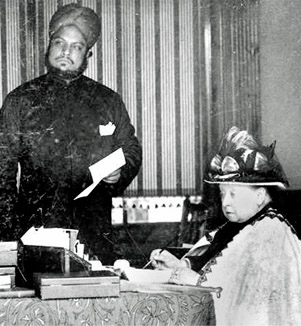
The Bible remind us,
For there is nothing hidden that will not be disclosed, and nothing concealed that will not be known or brought out into the open. —Luke 8:17
- Violence: Moderate
- Profanity/Vulgarity: Moderate to Heavy (due to f-word—“What in the f*ck…?”), “to look at Indian d*ck,” “They’ll chop your bloody b*lls off,” “For G*d's sake” (4), “J*sus Chr*st,” “J*sus H. Chr*st,” “Good G*d,” “Oh G*d,” “Oh my G*d,” “h*ll” (10+), d*mn (2), “s-words” (4), ars*hole, bloody
- Nudity: • There are nude women statues, bare-breasted women in a painting, and a painting of nude men (not graphic). • No nudity shown involving the characters, but it is implied in a doctor’s examination.
- Sex: • No sexual activity shown • Investigation and brief conversation related to why a couple has not borne children—ends with doctor’s claimed discovery of male gonorrhea
See list of Relevant Issues—questions-and-answers.


It is more of a movie about the staff wanting to get rid of Abdul than anything else. And we didn’t really learn much about him, so there was no connection for me. It’s basically a vehicle for Judi Dench to be her most Judi Dench-like. She’s good. The movie really isn’t.
In his letter to his family, he hoped by convert the royals to Islam. The screenwriters and the author never presented any of these. Abdul Karim was known as a “munshi” which means teacher, and he wanted to present Islam as a vision to the world. Though, the queen has maternal affection for him, she resisted the Islamic agenda, which delayed his return, and his family was quite upset by it, and his affiliation to the infidels.
Hollywood just conjure up a fantasy to present this politically correct world, for favouring Islamic migration to the West, supporting cultural cultural Marxism, and ultimately destroying the Judeo-Christian ideals for Islamic propaganda. Remember, the movie is produced by BBC, which is strongly pro-Muslim and anti-Christian in their biased broadcasting.
It’s sad in India, we can see what Hollywood is doing, and in the West people consider these film as humourous and innocent. But always claim, who we are to judge, but it’s the good men’s silence which is detestable and a crime of the worst kind. Boycott these kind of propaganda films presented as historical truth! God bless.
Moral rating: Very Offensive / Moviemaking quality: 4
PLEASE share your observations and insights to be posted here.


My Ratings: Moral rating: Better than Average / Moviemaking quality: 4